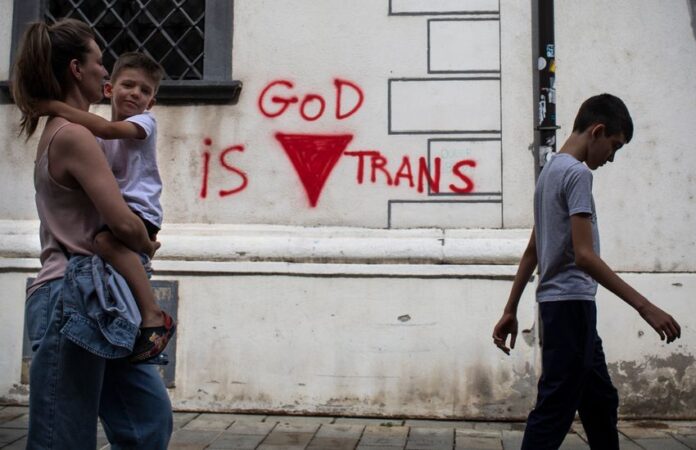Bishop Robert Géresi says the vandalism in Bratislava is just the beginning. Although they have not yet recovered from the shock of the vandal LGBTQ attack in Bratislava a week ago, Slovakia is already fearing further vandalism. Meanwhile, Christian churches in Hungary have stressed that they consider all forms of vandalism, as well as the vandalization and mockery of Christian symbols, to be equally unacceptable. The perpetrator or perpetrators are still being sought, and the investigation into this case is ongoing.
– At the moment we are dealing with an isolated phenomenon, but we fear that similar incidents could be repeated and become commonplace,” Róbert Géresi, the bishop of the Reformed Christian Church of Slovakia, told the Hungarian daily Magyar Nemzet in connection with the LGBTQ vandalism in Bratislava. Géresi said that there have been cases of vandalism at historical sites and cemeteries in Slovakia before. However, he said that no churches and church buildings had been damaged in a series of deliberate ideological acts of violence: “We see a tension between LGBTQ propaganda and traditional Christian values that can also be felt in Slovakia. Although not as much as in Hungary, but here in Slovakia this issue is part of the public discourse, and the outrage over the recent vandalism is great”, said the bishop, who fears that the attacks will not stop.
The Hungarian Catholic Bishops’ Conference and the Reformed Church of Hungary expressed their regret over the events in Bratislava upon request. They stated that they consider all forms of vandalism, as well as the vandalism and mockery of Christian symbols, to be equally unacceptable. The Hungarian Evangelical Church did not react.
Vandals had painted LGBTQ slogans on local churches and monasteries in central Bratislava a week ago; red lettering also appeared on the old town hall. The English inscriptions were “God is trans”, “trans is beautiful”, “gay power” and “gay revolution is coming”. The police have initiated an investigation into vandalism. Police are also investigating the extent of the damage caused by the vandal. Michal Szeiff, a spokesman for the Bratislava District Police Directorate, told TASR news agency that the perpetrator could be sentenced to three to eight years in prison.
The vandalism, which was an open provocation, has caused a strong outcry in the Slovak public. Slovak Deputy Prime Minister Veronika Remišová was the first to react and condemn the vandalistic attacks on churches. In a press release, the Hungarian Coalition Party (MKP) has strongly condemned the vandalism of churches and church buildings in Bratislava. The party stressed that it rejects both the ideology of the inscriptions and, above all, the violent way in which the messages were conveyed: “The MKP respects the sexual orientation of all adult citizens, but does not support the violent dissemination of any sexual propaganda to maintain social peace and normality,” she added.
Tibor Hajdu, head of the archiepiscopal office, also described the incident to TASR as regrettable and stressed that the perpetrator had caused significant property damage.
Source: Magyar Nemzet


